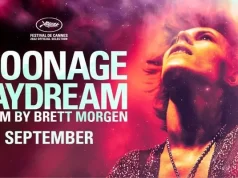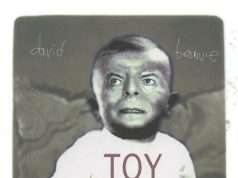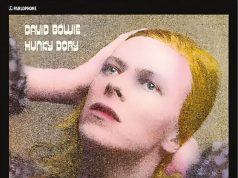A un anno esatto dalla scomparsa di David Bowie, l’amico e produttore Tony Visconti, al suo fianco in numerose opere discografiche, ha voluto ricordare il Duca Bianco con un lungo e toccante post pubblicato sulla sua pagina Facebook, in cui parla del modo in cui venne a sapere della sua morte ma anche di quella “cattedrale gotica” che ersero insieme chiamandola “Blackstar”. Qui in basso il post integrale.
10 January 2016 – The Worst Next Day
I was sound asleep in a hotel room in Toronto when my phone lit up around 2 am with texts every second. The messages were more or less the same thing – ‘David Bowie has died’, something I had been dreading for a year. Strangely, I said to myself, ‘Oh God’ and fell back to sleep (Holy Holy had played an exhausting show the night before). My roommate, saxophonist Terry Edwards, woke me up gently around 7 am whispering, “Tony, something terrible has happened.” A few minutes later Woody Woodmansey came into the room and tried to console me. My band, Holy Holy, hadn’t any idea David was terminally ill. I had signed an NDA a year earlier (which was unnecessary) vowing I wouldn’t reveal any details about the recording of Blackstar. The shock was obviously greater to them. Just two days earlier they were overjoyed to hear that the album was released – as I was. (We had been paying tribute to David since 2015, playing The Man Who Sold The World in its entirety along with other great Bowie songs, specifically ones that Woody and I had a part in making. I showed David a video of us playing The Width Of A Circle live at the Shepherds Bush Empire and he tacitly approved.)
Looking back a year I realize I was so fortunate I was with my band when the news broke. If I was on my own I would have been totally devastated, totally. We were asked to do a second show that evening to accommodate those who couldn’t get in the night before. We had to discuss whether it was better to end the tour then and there or play this one final show. Considering our feelings and love for The Great Man, and the beautiful audience in Toronto who came for the first ecstatic night, there was only one right answer. We played, but it was a very different show. Woody and I addressed the audience before we played and said we felt it was appropriate to celebrate our dear friend’s life together (rather than scatter to the four winds in our own private grief – that would come later, of course). Of course some of the audience couldn’t hold back the tears, but we the band and the audience were all there for each other.
So, grief is a very real thing. There is no control over it. I have been on an emotional roller coaster all year and I know most of you have been too. I talk to David in my head all the time. It’s still very hard to come to terms with. In the last year of his life he was so vibrant and creative. Making Blackstar wasn’t a haphazard affair, we knew every minute we were making something akin to constructing a Gothic cathedral. This was a very special album from day one. David was so happy and energetic making The Next Day but on Blackstar he was so much stronger, more positive and bursting with creativity. Our team, the band, the technicians and everyone who visited us in the studio kept shooting glances at each other – is this really happening? When the singles Blackstar and Lazarus were released, and then the album, we were right there cheering along with the public! At last we could talk about it (albeit very little). A worldwide celebration exploded with the news of new David Bowie music.
I will end here. I will try to accept that David has passed. I’ve been through every stage of grief in the past 365 days, including anger. Of course, he never left us in spirit. We are fortunate to have lived in the same time as him. We’ve seen him, we’ve heard him sing and speak, we’ve hugged him, we’ve worshipped him and we are constantly reminded of him daily. He was a legend in his lifetime and he will be a legend until the end of time. But he was my friend too. I miss him dearly.




